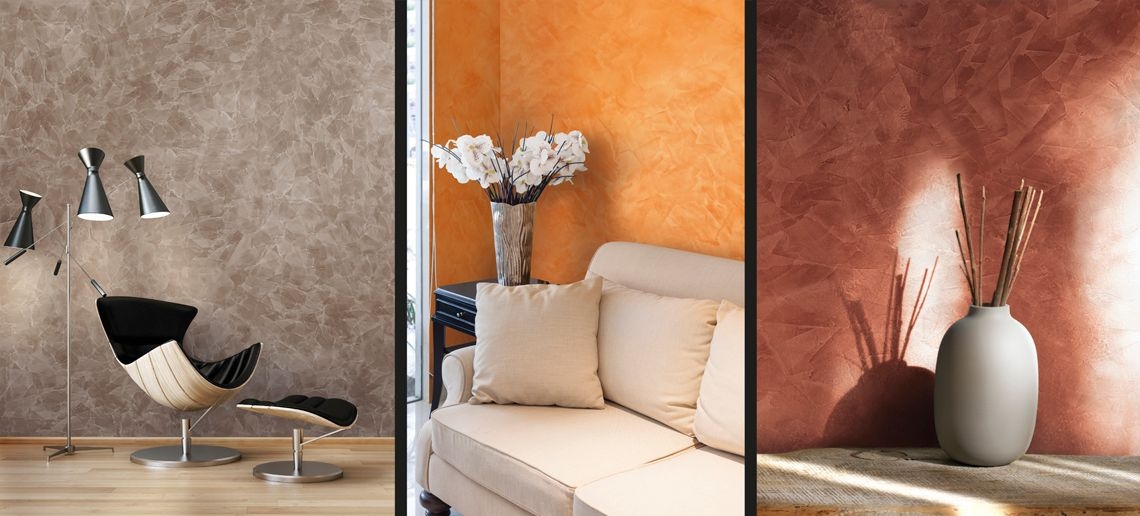... marvellous white and gold plaster, and a coffered ceiling with relief work enhancing the frescoes. An extraordinary effect is created where painting and sculpture seem to interact: the gold plasterwork stands out against the white and blue backdrop, creating a rich and sumptuous overall effect.
We are at the Doge's Palace, the most famous (and most photographed) building in Venice. And this is the description of the two renowned staircases: the Golden Staircase and the Library.
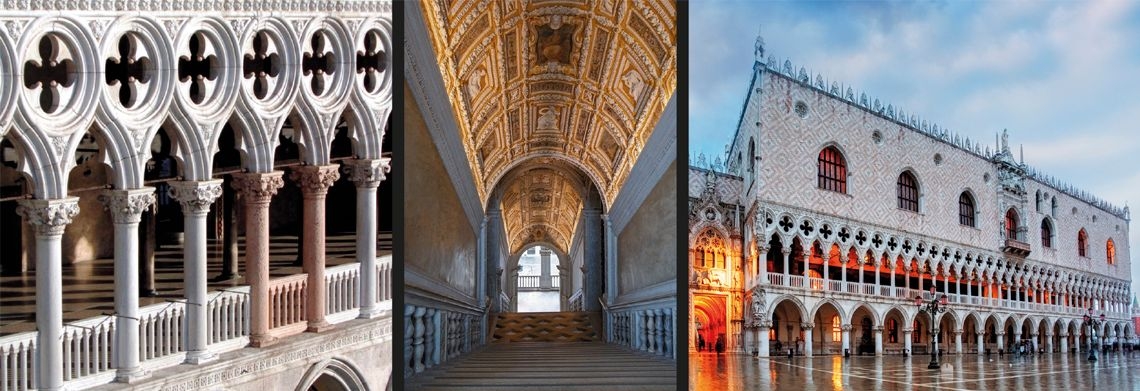
We felt that there was no better reference to describe the value and potential of Venetian plaster wall decoration.
However, the name is actually slightly deceiving.
Whilst it was historic Venetian dwellings that really brought out the full expressive potential of this decorative paint, its origins are actually far more ancient.
We need to go back almost 5000 years to find the distant roots of this ancient plasterwork technique. In fact, according to certain historical sources, its origins can be found in the eastern provinces of Iran. It was from here that architectural plasterwork then spread through Mesopotamia and across the West.
During this journey, Venetian plasterwork was subject to various cultural influences that determined its specific characteristics. Inevitably, the colours, tastes and styles of the places through which it passed influenced the decorative interpretation, whilst the technique and composition of the original mixture remained unchanged.
In Italy, this decorative technique was adopted for the first time in the Republic of Venice. Beyond appreciating its exceptional elegance and refinement, the painters of the time immediately realised that Venetian plaster was exceptionally resistant to humidity and was therefore perfect to decorate the city’s most prestigious villas.
The universal nature of spatula-applied Venetian plaster as a decorative product is due precisely to this contact with so many different cultures, each contributing something to its immortal character.
Venetian plaster effect paint: the benefits
Composed of marble dust, lime and water, Venetian plaster is now a benchmark for all interior design projects wishing to focus on the elegance and refined aesthetics of a space.
And it is easy to understand why:
• It allows a highly personalised approach, not only in the grade of finish, but also in the nuances that can be achieved
• being a material that requires expertise and artisan skill for its application, the effects possible are truly unique. The result can change depending on the type of application, strokes, and the artistic style of each artisan;
• Venetian plaster is glossy, with a mirrored effect, generating a lot of light and is often reflective. The skill of the painter can be seen in the ability to create light effects, using this feature to brighten spaces.
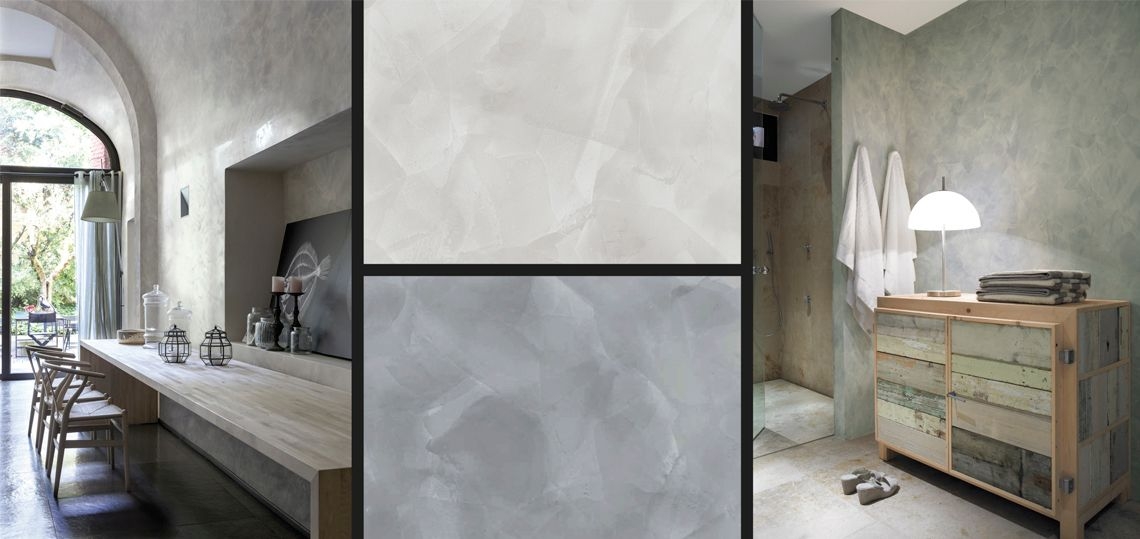
However, the strengths of Venetian plaster effect paint are not solely aesthetic. There are also many practical advantages:
1) breathability: being a lime-based paint, application of Venetian plaster guarantees excellent breathability of the wall and helps to avoid accumulation of humidity;
2) as this is a product with a “smooth” composition, it works against the attachment of fungal growth and prevents formation of mould even in areas where condensation tends to build up;
3) waxing of Venetian plaster also makes walls completely water-repellent.
Venetian plaster: the colours
From more subdued tones through to bold and lively shades, the full spectrum of colours can be covered using Venetian plaster paint.
White Venetian plaster
White is perhaps the most obvious colour, but it is also the least widely used, except for certain pleasant visual effects.
However in recent years, with an absence of colour being a feature of many environments, white Venetian plaster has been rediscovered and its use has spread amongst the bravest interior design projects.
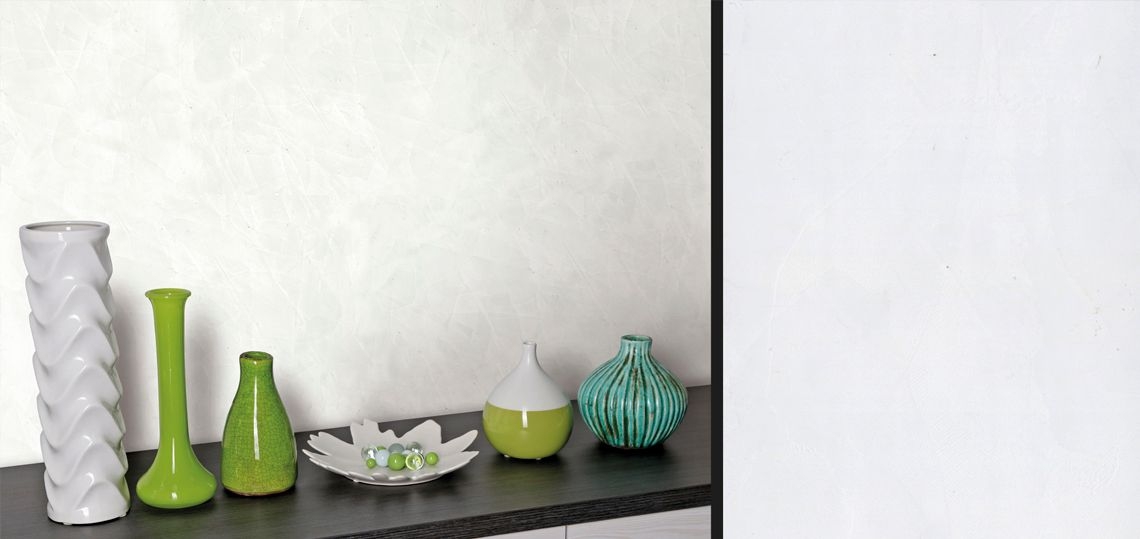
Grey Venetian plaster
Perfect for contemporary spaces, of all the colours of Venetian plaster, grey is undoubtedly the most versatile, so much so that it can also be used simply as a background.
This colour also offers a dynamic aspect to environments that would otherwise seem empty and “lifeless”.
Pearl-grey Venetian plaster, combined with baroque-styled furniture, makes the perfect finish to create an environment with a classic, highly refined and captivating feel.
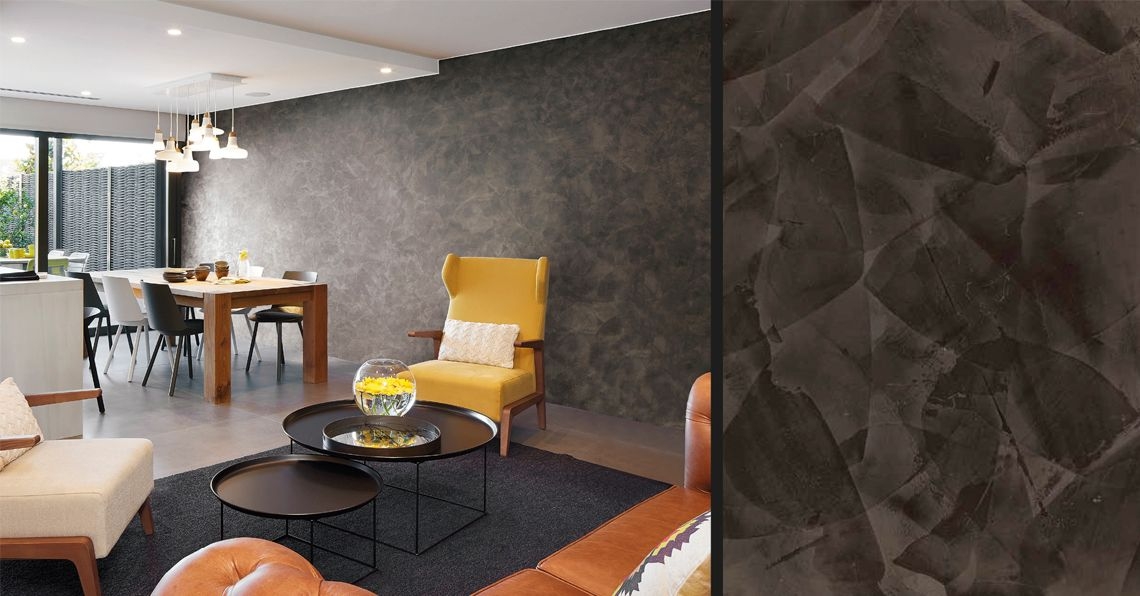
Black Venetian plaster
Black?!
Yes! Using this dark tone, Venetian plaster can be combined with white to decorate walls and create truly chic and dramatic effects.
Just one precaution: do not overdo black in small rooms, as this could visually reduce the living space.
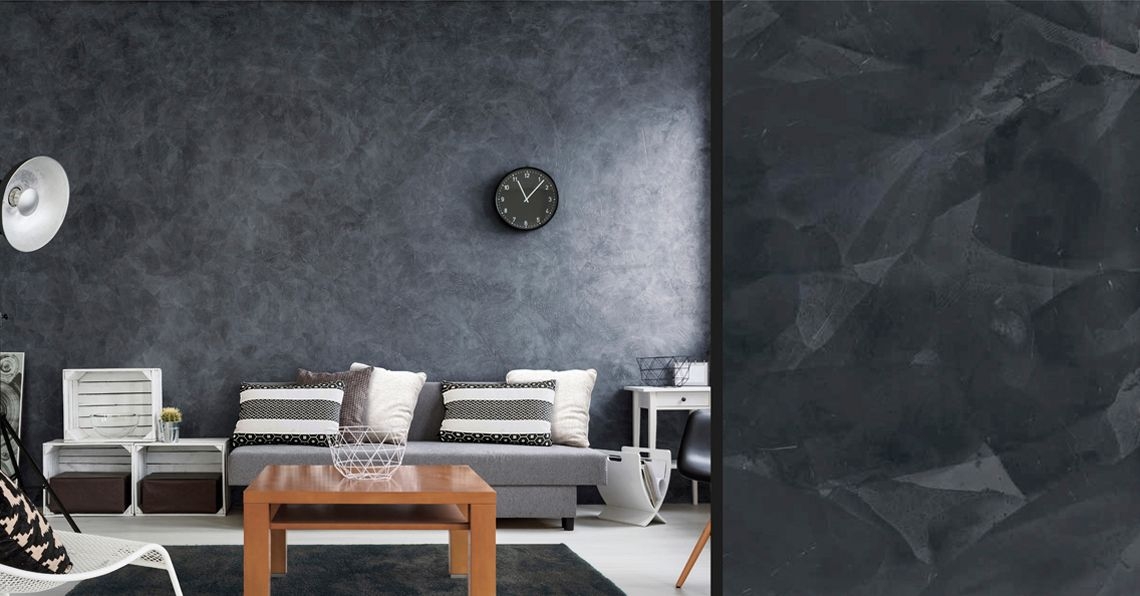
Venetian plaster in warm colours
Straw yellow or peach tones are the perfect shades for more sober environments.
Meanwhile, bold colours such as purple, violet or blue can be used for greater impact in certain specific contexts, both domestic and commercial.
Colour variants with gold and silver tones are particularly popular.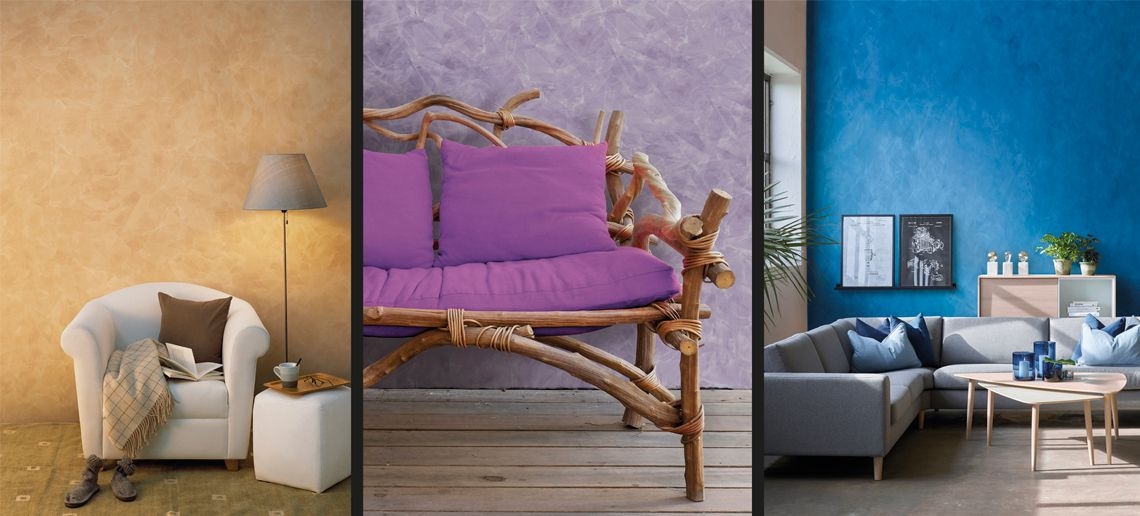
Obviously, pairing of colours with the environment to be painted is of huge importance: for the internal walls of an apartment, pastel tones may be more appropriate, whilst bolder choices are typical for decorative panels, niches, and special corners with a specific, targeted style.
Applied using different techniques, these colours allow use of spatula-applied Venetian plaster to create further effects, including pearlescent finishes, or antique-stone and vintage looks.
Rococò: VALPAINT Venetian plaster
VALPAINT has always given ample space to Venetian plaster in its decorate range, due to its strong position in interior architecture.
In order to identify elegant, high-quality and refined design solutions, VALPAINT offers a series of products to meet all requirements.
The VALPAINT range of Venetian plasters, called ROCOCÒ, includes:
• STUCCO VENEZIANO 500 ALLA CALCE
• STUCCO VENEZIANO 800
• GRASSELLO DI CALCE
• To complete this already broad range of plasters, we present the brand new STUCCO 1000: further evolution of the VALPAINT range. The key features of this product are its ease of application and high-gloss finish, giving surfaces an extraordinary shine.
